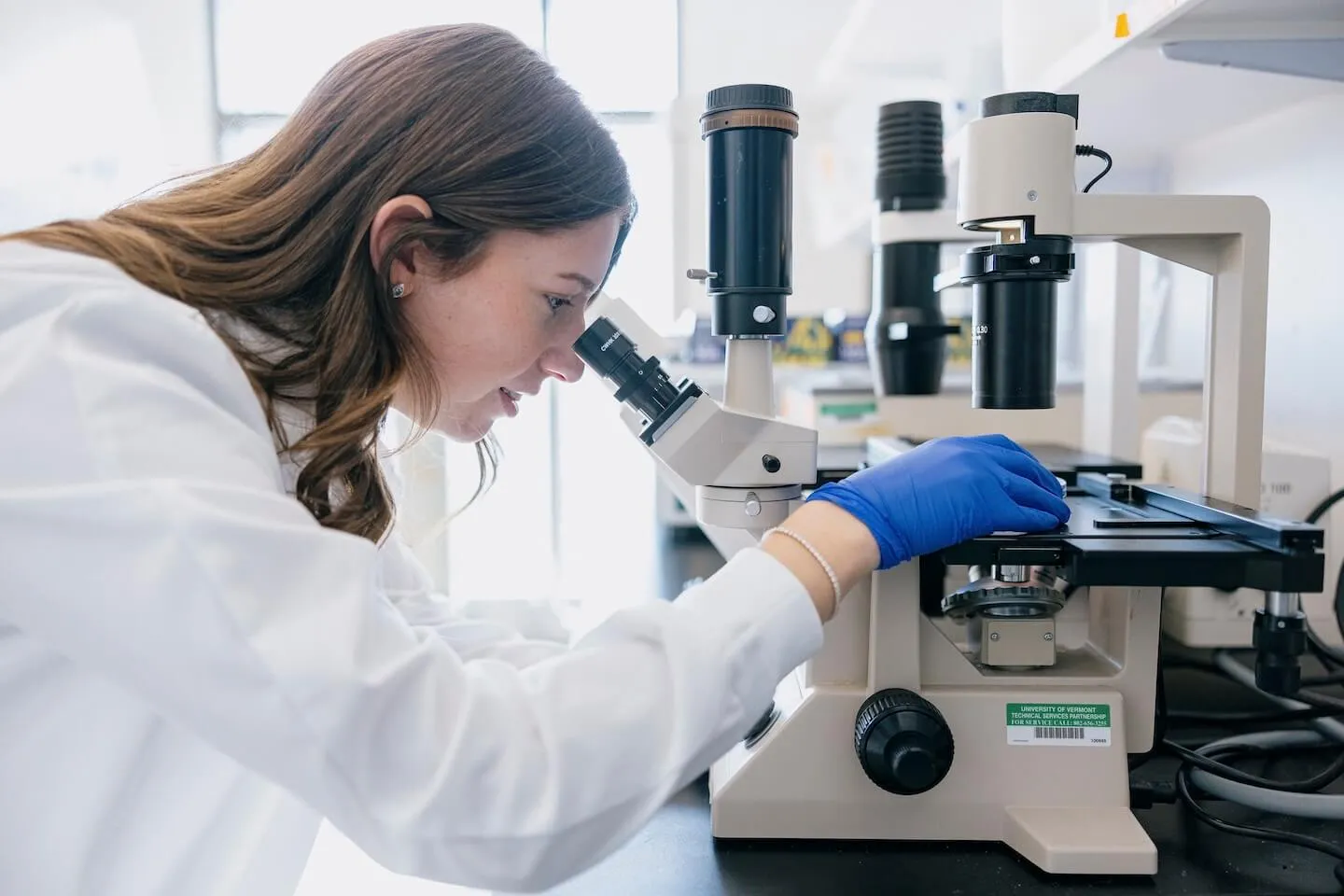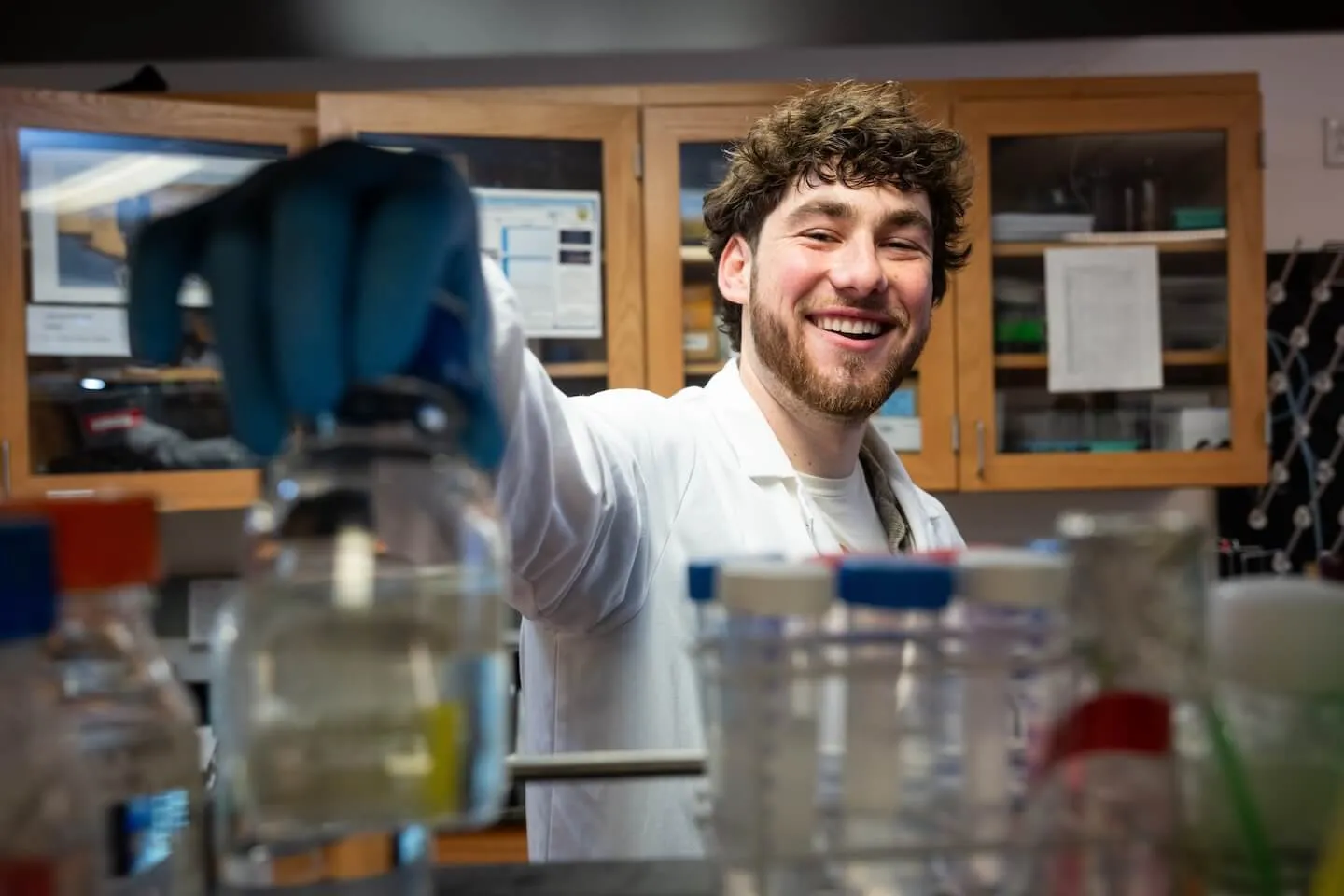As a first-year biology major, Jessica Reich joined UVM’s club gymnastics team hoping to reconnect with a sport she enjoyed as a kid growing up in New Jersey. It didn’t go exactly as planned. Picking gymnastics back up at 18 after many years away “wasn’t very good for my body,” she admitted, but the connections she made in the club somersaulted her to something else: a passion for biomedical research.
It turns out that both the president and the secretary of the gymnastics club were majoring in microbiology and molecular genetics. “And I was telling them how I was dreading having to take ecology and evolution [for the biology major] because it’s never been my favorite thing, and I don’t particularly love plants,” Reich recalled.
Her gymnast buddies gushed to her about their department, how they got to learn about microbes and viruses and public health.
“And I was like, I love that,” Reich said. “This is exactly what I want to do.”
By spring semester of her first year at UVM, she had switched into MMG. In a class called “Drugs from Bugs,” she and her classmates collected soil samples from around campus, then tested them to see if they contained antibiotics (some of them did).
At the start of her junior year, she joined Dr. Nimrat Chatterjee’s lab in the UVM Cancer Center. Reich earned her bachelor’s degree in the spring of 2025 and — thanks to UVM’s Accelerated Master’s Pathway program — she’ll have her master’s in microbiology and molecular genetics next spring.
“I joined the lab actually with the intention of doing the AMP,” she said. Reich was excited to be able to earn her master’s degree just one year after her bachelor’s. Plus, that extra year in the lab would give her the experience she needed to be a good candidate for a Ph.D. program.
For her master’s project, Reich is investigating the role of genomic instability following an infection with the dengue virus.
“One of the main problems with the dengue virus is that there are four different serotypes, so it’s a lot harder to make a vaccine,” she explained. A serotype is a distinguishable strain of a microorganism. Plus, Reich said, studies have shown that people who have had a dengue virus infection have an increased risk of developing leukemia five or six years later.
Reich loves her lab work, but after she finishes up at UVM and pursues her Ph.D., what she really wants to do is teach.
“One of my favorite parts of the AMP program is getting to be a graduate TA,” she said. Watching her students focus a microscope on bacteria for the first time, getting to see “that first lightbulb moment for them — that’s really cool,” she said.
The UVM AMP program gave Reich a fast track to her dream career. "Even if it is a long day, it doesn't feel like a job," she said about working in the lab and as a TA. "I'm having fun and doing what I love to do."

